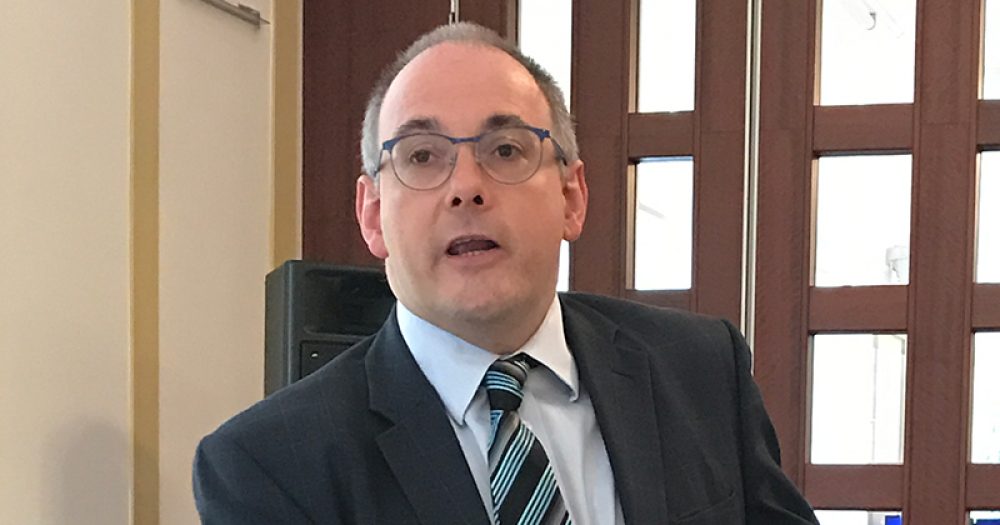The education select committee has accused Ofqual of “burying its head in the sand” by ignoring repeated warnings in the run-up to this year’s disastrous exams, claiming the regulator instead chose to follow orders from ministers and “hoped for the best”.
As well as questioning the independence of the regulator, committee chair Robert Halfon also took aim at the influence ministers may have had over decisions and the Department for Education’s failure so far to produce requested papers detailing the decision-making behind scrapping exams.
A letter to education secretary Gavin Williamson also states exams must go ahead in 2021 and “robust contingency planning must be in place as soon as possible to ensure this can happen”.
Halfon said the “fallout and unfairness” from the cancellation of exams will “have an ongoing impact on the lives of thousands of families”.
“But such harm could have been avoided had Ofqual not buried its head in the sand and ignored repeated warnings, including from our Committee, about the flaws in the system for awarding grades.”
He writes that although Ofqual were “clearly aware” that its controversial algorithm would cause problems for high achieving pupils in historically low attaining schools it “believed the number would be statistically small and could be addressed through an appeals process”.
It also recognised the approach would benefit smaller schools, such as private schools, and place pupils at large schools and colleges at a disadvantage.
Halfon said it was “revealing” that Ofqual ploughed ahead instead of raising issues at the time.
The letter states: “We regret that Ofqual decided not to raise wider concerns about the fairness of the model they were being asked to implement.
“They had every opportunity to do so when they came before us in June. Instead, they simply followed the ministerial direction and hoped for the best.”
Halfon explains the “whole episode calls into question Ofqual’s independence” from government.
While ministers are able to issue directions to Ofqual – the regulator is not required to follow these directions.
The committee concluded it was unacceptable that the regulator had taken up a “half-way house position where lines of accountability for standards are blurred”.
It was also revealed that the committee is of the opinion that if running a full schedule of exams this year was not possible there should be at least be exams in ‘core subjects’.
“There must be exams in at least English, maths and the science subjects, so that students are tested in these core curriculum subjects”, Halfon wrote.
This suggestion echoes comments made yesterday by Ofsted’s chief inspector Amanda Spielman when speaking in front of the education committee.
Spielman, who is chairing Ofqual’s new “recovery committee”, said holding exams only in core subjects was “the kind of option under consideration” for next year.
However she caveated this suggestion and said “every option creates some unfairness”.
GCSE and A-level exams are currently scheduled to go ahead as normal next summer with the addition of a three-week delay to help pupils make up for any time lost learning due to coronavirus.
Halfon also noted that the select committee had not yet been provided with the “relevant information and papers” by the Department for Education relating to the decision to cancel exams in 2020.
Despite ministers assuring the papers would be provided in early September they have “not materialised”.
He said he expected the papers by Monday, November 23, so that the committee “may complete our investigation”.
Geoff Barton, general secretary of the Association of School and College Leaders, said: “It is completely unacceptable that the government has apparently thus far failed to supply relevant papers and the minutes of meetings requested by the committee.
“We seem to be no nearer understanding what steps ministers took to ask the right questions at the right times to assure themselves on behalf of the public that the system for awarding grades would work and wouldn’t fall apart in the way that it did.”









‘a three week delay to help pupils make up for any time lost learning due to coronavirus’
Makes it sound like there was some flooding or heavy snow for a short period.
Pupils and parents and teachers have been bombarded from March to November, and there’s no guarantee 2021 will run smoothly.
We live in a country the size of a postage stamp, and yet Wales/Scotland have resorted to a different plan. It might not be ideal but at least teachers have 6/7 months to come up with some credible assessment for their students.
The disparity in syllabus coverage, and the setting/marking of formal exams at the end of their courses in 2021 seems like a disaster waiting to happen.
Another U-turn might well be coming – Gavin Williamson just has to address the situation, and sort it.
I’m long retired, so I have no personal agenda, but conversations with ex-colleagues etc at various levels spurred me to comment.